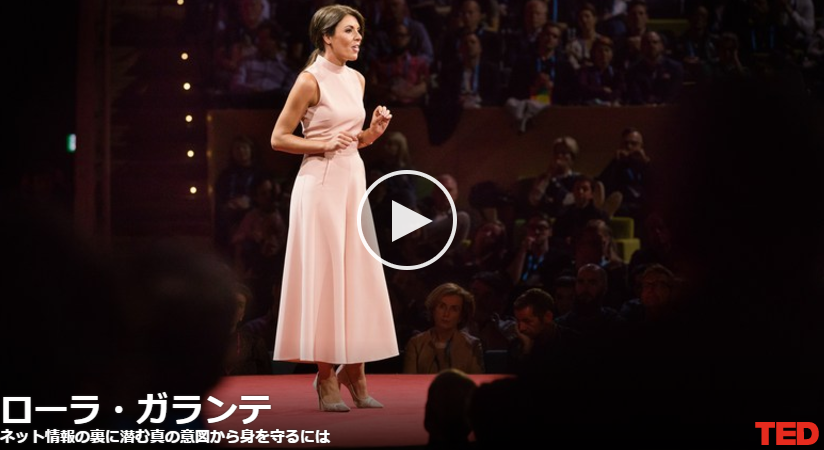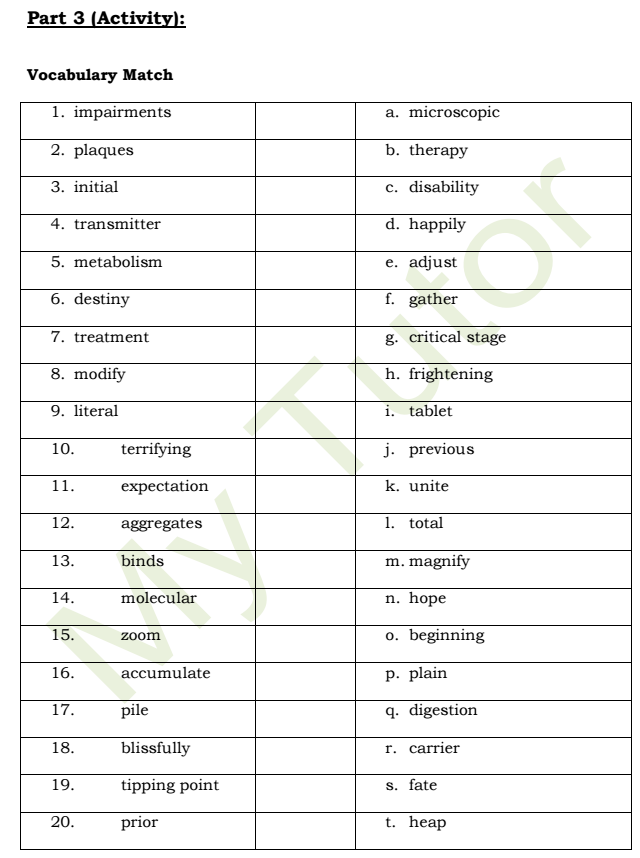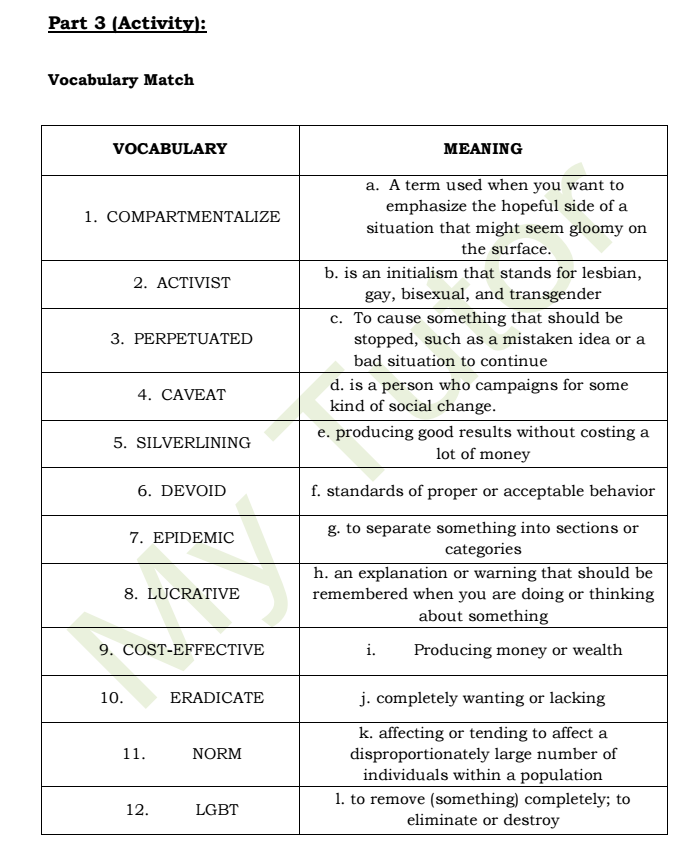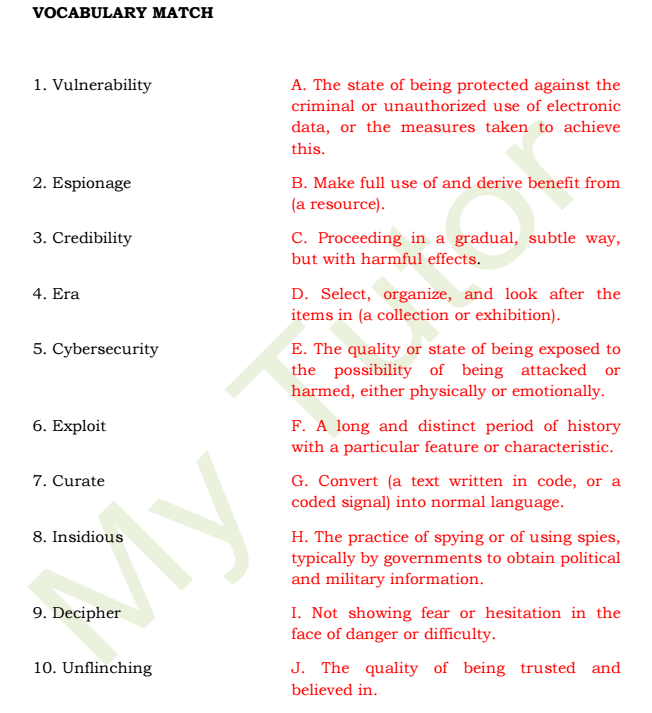Part 1 (Comprehension Questions with Sample Answer):
- According to Stuart Russel, who is Lee Sedol?
- What is Stuart Russel’s definition about real world?
- Is the idea that AI might spell the end of the human race a new thing?
- What did Alan Turing (the Father of computer Science and AI) said about AI might end the human race?
5. What is a Gorilla problem according to the speech?
6. According to him, what can we do about the feeling that making something smarter
than your own species?
- What did Norbert Wiener said about AI?
8. What does “the King Midas Problem” means according to Stuart Russel?
9. What are the three principles involved?
10. Does the robot has to copy human’s behavior according to Stuart Russel?
�
Part 2 (Express Yourself Questions):
- What images do you have on your mind when you hear the word ‘robot’?
- Why do you think people invented Robots?
- . How do you think people would live in the future if robots will be our
helper?
4. What do you think are the disadvantages of an AI?
5. What do you think will be the greatest contribution of robots in our life?
6. Do you think robots will give us a convenient life?
7. In your own opinion, will robots replace humans as work force in the
future?
8. Do you think robots take over the world one day?
9. The West sees robots as threatening, Japan sees them as helpful – howabout you?
10. Which movie about robot is your favorite?
11. What would you like your robot to do if you have a chance?
12. What role will robots play in our society after five decades?
13. Will robots ever like identical to humans’ behavior?
14. Do you think robots will ever have emotions?
15. What would happen if you programmed a robot to hate and to love?
16. What pet name would you give to your robot?
17. Do you think people will have robots as companions, instead of a family?
18. Do you think people will have robots as companions, instead of a pets?
19. Will robots have rights in the future?
20. Have you ever felt as though you were a robot?
Part 3 (Activity):
Vocabulary Match
altruism civilization queasy feeling subservient position, notion cognition
redefined catastrophe “Holy Cow!” compatible dire straits taser
inevitable aligned nail down
- _____________is an exclamation of surprise used mostly in the United States, Canada, Australia and England. It is a minced oath or euphemism for “Holy Christ!” 2. _____________ the stage of human social development and organization
that is considered most advanced. 3. _____________ prepared to obey others unquestioningly or submissively. 4. _____________ in a very bad situation that is difficult to fix. 5. _____________ nauseated; feeling sick 6. _____________ “to catch, seize” 7. _____________ an event causing great and often sudden damage or
suffering; a disaster. 8. _____________ a conception of or belief about something. 9. _____________ selflessness is the principle or practice of concern for the
welfare of others. 10. _____________ place or arrange (things) in a straight line. / give
support to (a person, organization, or cause). 11. _____________ define again or differently. 12. _____________ a weapon firing barbs attached by wires to batteries,
causing temporary paralysis. 13. ______________ certain to happen; unavoidable. 14. ______________ (of two things) able to exist or occur together
without conflict. 15. ______________ the mental action or process of acquiring knowledge
and understanding through thought, experience, and the senses.









